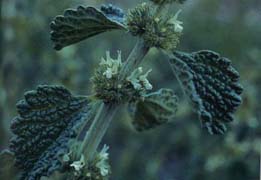User Login |
A. Theme Description
Facts and Information About Compost:
“Composting is, in broadest terms, the biological reduction of organic wastes to humus (Pg. 1).”
Humus is decayed plant life in its final form. It is rich in nutrients and organic matter. It is perfect soil.
The oldest existing writings on compost were found on clay tablets from Mesopotamia one thousand years before the birth of Moses.
In North America composting was used by native peoples long before the Europeans arrived.
By the middle of the 19th century composting was used by most of the Yankee settlers.
In the past, composting methods consisted of manure, plants and white fish.
Generally speaking new land does not need to be composted, but once it has produced successful crops and the nutrients have been used up composting is then a necessary step in fertilizing the land.
It has been found that the best compost consists of three times as much plant matter as manure.
The Indore method of composting is when organic materials are layered in a sandwich fashion and mixed by earthworms or turned by human hands during decomposition.
“Composting has been a basis of the organic method of gardening and farming since the days of Sir Albert Howard, father of the organic method (Pg. 7).”
Today, the organic method of gardening and composting is as popular as it had been before the turn of the last century.
Composting is much more than a fertilizer or soil conditioner. It is a symbol of the continuation of life.
When composting the need for chemical fertilizers are greatly reduced.
Compost builds high-quality soil structure.
Good soil structure allows the plants and their roots to breath.
Soil that has had the benefit of compost holds more moisture.
Compost helps to build a strong soil structure that in turn can resist erosion.
Composting keeps the soil aerated which is crucial to the soils health
Compost carries nutrients to soil and plant life
Humus holds many nutrients that are readily available to plants.
Compost can help neutralize soil toxins.
Chemical fertilizers are not a substitute to organic matter produced by composting.
“The two most important aspects of a compost pile are the chemical makeup of its components and the population of organisms in it (Pg.29).” Martin, Deborah L. and Grace Gershuny (Eds.). The Rodale Book of Composting. Emmaus, PA, 1992 : Rodale Press. |
